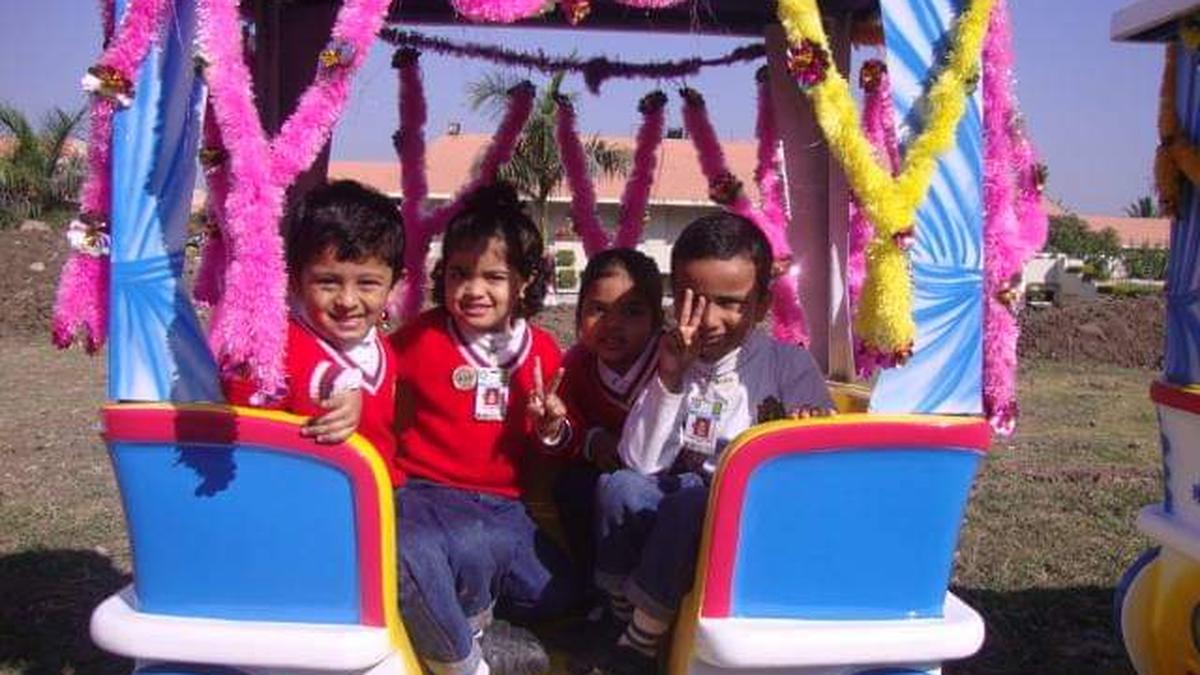
Toy trains, puppet shows and in-house farms: How some schools are stimulating and engaging students Premium
The Hindu
Toy trains in schools spark joy and creativity, enhancing learning experiences and fostering holistic child development.
Four-and-half year old Inaaya Siddique’s high point on a typical day in school is the ride on the toy train in her school campus. “I love the toy train. I get to sit with my friends. We laugh and have fun. We make train noises and shout out, ‘hip-hip hurray’,” she says with obvious delight. Inaaya is a student of Delhi Public School, Indore. Rukshar Siddique, her mother, is happy too. “There hasn’t been a single day when Inaaya said no to school,” she says, giving credit to the toy train
Once synonymous with the bright lights and bustling corridors of malls and amusement parks, toy trains are now making their way into an unexpected territory: schools, colleges, and even hostels. They may cost between ₹7 lakh to ₹50 lakh, depending on their size and capacity. But they are a source of great delight for students of schools, leveraging a child’s fascination with trains in general. One toy train vendor says he has supplied toy trains that run inside campuses to around 150 schools across India -- from Chennai through Indore to Kolkata and Rajasthan.
While toy trains are pure fun, schools are also investing in engaging activities and modern facilities that support learning as well. Fun has become the need of the hour, as it encourages to engage students towards sustainable attention spans.
A multi-temperature swimming pool can cost between ₹50 to ₹75 lakh. These are all weather facilities. Sports complexes offer a range of outdoor and indoor games, including basketball, tennis and athletics with investments of ₹1.5 to ₹2 crore. Air Conditioned buses and classrooms have become the norm in private schools. A Montessori-style learning room can cost ₹8 to ₹12 lakh.
Urmi Banerjee, Head of Department of the Junior Section of DPS Indore, says the school has had a toy train on campus for the past seven years. “It’s a source of great fun and excitement for the kids when they get a chance to go on a toy train picnic. It encourages them to return to their studies with more focus and enthusiasm. We’ve observed noticeable changes in students’ behavior before and after a ride. It’s a real motivator for the rest of the week.”
Ravi Kumar, the owner of E-Fuel Automotive, a company that specialises in toy train manufacturing, spoke about the surge in demand. “We’ve seen a massive increase in inquiries from schools and colleges in the post-COVID years. Institutions are looking for something unique to offer their students, and the toy trains fit that need perfectly. We’ve customised trains for schools with cartoon themes.”
The toy trains are not really trains. They look like ones with tracks and tyres but are actually just battery operated vehicles and can be driven by anyone with a valid driving license.





















 Run 3 Space | Play Space Running Game
Run 3 Space | Play Space Running Game Traffic Jam 3D | Online Racing Game
Traffic Jam 3D | Online Racing Game Duck Hunt | Play Old Classic Game
Duck Hunt | Play Old Classic Game











